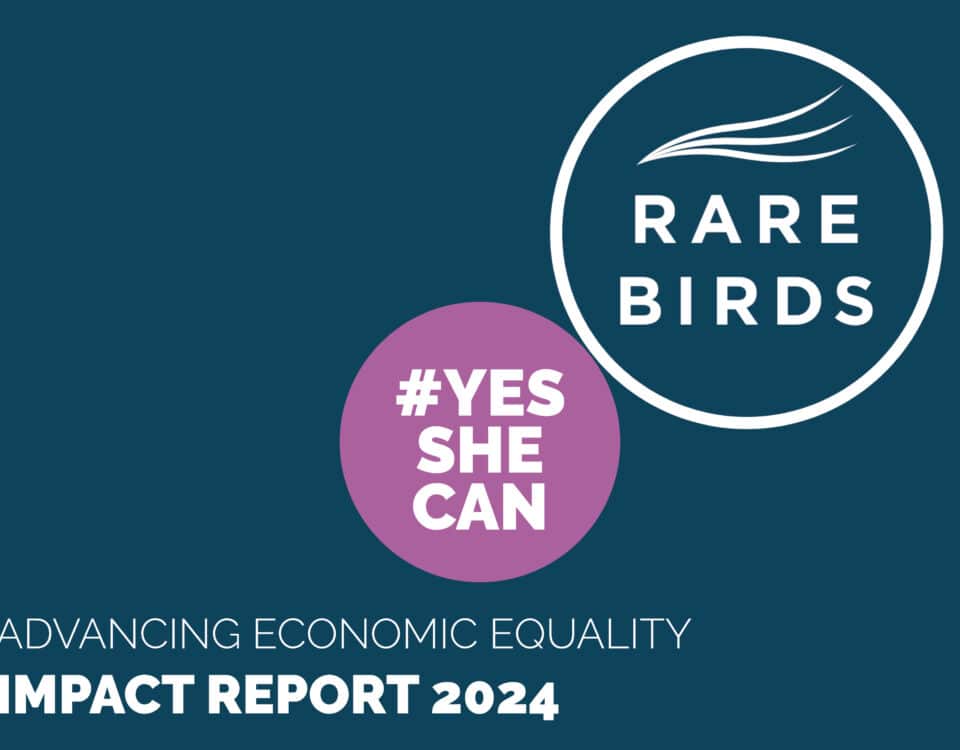Stuart Butel is the Director at JME Biz Solutions and has spent many years supporting business owners to grow their businesses. He therefore felt that it made perfect sense for him to volunteer his time to help entrepreneurs through the Rare Birds Mentoring Program
You have had a long career working with small business owners to grow their business. What have been some highlights? What has been the biggest impact you have had?
Over many years mentoring small business owners, there have been several highlights that stand out as defining moments. One highlight was helping a startup persevere with the strategies we put in place early in our initial engagements, there were many doubts but as a team we remained focused and committed to the plan and positive outcomes were achieved. Witnessing the success of the small business was very rewarding.
Working with small business assisting them with applying and obtaining start up finance is another highlight that has been achieved with various startups. Obtaining finance for a new business is time consuming and frustrating for the owners, but the reward is worth the effort.
The most significant impact I have had is the one-on-one relationship that I have been lucky enough to be involved in with the business owners. These relationships are developed over time and allow the business owner and I to have open, honest conversations about their business. Through these discussions and dialogues, the owners receive valuable insights that help them increase their certainty while making daily business decisions.
When you begin working with a business owner, what is the first part of the process?
The first stage of the process is to build rapport with the business owner. The relationship will not develop if the owner and the consultant do not find common ground, this can be done by exchanging working backgrounds and some personal information. All of this is important in establishing a good working, honest business relationship. The next stage is to understand all aspects of the business including its background and history, identifying what the owners’ desired outcomes are, current business performance and assessing pain points. It is also important to know the strengths and weaknesses of the owner and combine and apply my experience and skills with theirs to achieve desired business outcomes. Lastly, the business owner and I will define the scope of our engagement and the expectations of both parties.
How do you go about creating a successful business strategy?
Creating a successful business strategy is achieved by using a systematic approach to the business. It is important to define what the owners’ desired outcomes are, what is their vision for the future, what direction they want to take the business and most importantly how does this strategy enable owners to have a work life balance. Research and analysis of the market needs to be undertaken to ensure the industry is understood, target markets are defined, and competitors are identified. Understanding and identifying the customers that the business wants to attract, so that a value proposition to attract these customers can be developed, is an important part of the process. SWOT analysis forms a strategic part of the process, identifying strengths, weaknesses, opportunities, and threats to the business.
How do you work with teams that are resistant to change?
I have been involved with a few businesses owners that that have taken up the opportunity to work with me and together we have implemented changes to the business. Changes such as restructuring, setting targets for salespeople and efficiency targets for manufacturing staff are all part of management strategy but are not necessarily well received by staff. An empathetic approach toward these changes is required to ensure acceptance and a smooth transition. Clear open communications that detail why the changes have been made, as well as how they benefit the business and individuals, is required to ensure staff are on board with the changes and are willing to support management and each other to assist with reaching company goals. Allowing staff to have individual input in the decision-making process, encouraging them to contribute ideas and suggestions, helps to bring the team together and provides a sense of ownership. I believe making small incremental changes rather than wholesale changes is a superior strategy to adopt, as staff will recognise the positive effect changes have made to the business and be more accepting of further changes. It is also important that business owners are able to explain the changes to staff in detail and are willing to demonstrate their willingness to adapt and celebrate the success resulting from the changes.
What do you think are the qualities of a great team leader?
A great team leader works with their team to empower them to make decisions that are best for the business and the greater team. They pull people to their way of thinking, leading by example whilst remaining adaptable when facing challenges. Strong communication skills are required to set expectations of individuals in the team and assist with building a strong culture, where all team members support each other. A great team leader should be willing to delegate duties, but also be willing to work alongside all of the team to achieve business goals.
What are the three things every founder needs to know before launching their startup?
- What products are they selling and what is your unique selling proposition? Business owners should complete research of the market and validation that there is a demand for the product or service that is being offered.
- How is the business going to be run? Business owners should develop a business plan that outlines everything from sales and marketing strategies, financial management to manufacturing and operation details.
- How will you finance the business? Business owners should develop a finance plan which includes cashflow forecasts, timelines required to be profitable, capital expenditure requirements and other financial requirements needed to start and run the business. Once this is complete owners will be aware of the amount of capital that is required. This information will assist with developing an approach for raising capital when applying for finance with lending institutions.
How did you hear about Rare Birds and what made you sign up as a Mentor?
My first contact with Rare Birds was via a website enquiry, I wanted to use my experience and capabilities to give back to small business and hopefully make a difference to owners that are looking to work with mentors on a regular basis, discussing their day-to-day business issues. Most owners know what they want, the direction they want to take their business but are just seeking reassurance that they are on the correct path, I believe I can provide that service.
Who has been an inspiration or guide for you in your career and how did they help you?
Many years ago, at the beginning of my career, I worked as a salesperson for a company that sold industrial supplies where the Managing Director of the business encouraged all the sales staff to undergo extensive, continuous sales training. The training developed my understanding of the sales process, detailed the importance of being able to sell yourself as well as the product and allowed me to move into other areas of business confidently.
Would you like to give back while doing something you love? Join us as a Rare Birds Mentor and we will find you an entrepreneur or emerging leader who can most benefit from your unique skills and experience. Please reach out to Rare Birds General Manager Sarah McLachlan at sarah@inspiringrarebirds.com




